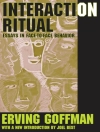The topics of bullying and hazing have sparked interest and discussion in recent years. Hazing is a crime in the United States, and Western nations have made efforts to stamp out bullying in schools, the workplace, and institutions. However, for the most part, bullying and hazing are ill-defined and lack theoretical perspective. Mestrovic brings classical as well as contemporary social theory to bear on this discussion.
Thorstein Veblen defined the predatory barbarian as the social type, enshrined by modernity, who prefers to use force over peacable means to achieve ends. On the other extreme, Marcel Mauss wrote about the spirit of the gift and its obligations – to give, to receive, and to reciprocate – as the fundamental basis of social life. Yet, he argued that the spirit of modernity was disappearing with the progress of modernity.
Mestrovic traces this fundamental opposition between barbaric force or bullying versus benign obligation that is the spirit of the gift through a host of modernist and postmodernist thinkers and theories. He introduces the concept of the ′postemotional bully′ as an alternative to both of these major bodies of social theory. The postemotional bully, as a social type, is fungible, beset by screen-images on media and social media that are isolating, and is at the mercy of the peer-group.
Case studies focus on bullying and hazing, specifically the cases of an American solider who committed suicide in Afghanistan, instances of torture at Abu Ghraib, and the murder of a 23-year-old African-American inmate in a Southern state prison in the US.
İçerik tablosu
CHAPTER: 1 THE PROBLEM
Defining bullying
Force versus obligation: Revisiting Marcel Mauss’s The Gift
The forced gift—the connection to bullying
CHAPTER 2: MODERNITY AS A BULLY
Auguste Comte: positivism at war with theology
Charles Darwin, emotions, and cooperation
Durkheim’s application of Darwin’s insights
Ferdinand Tonnies on the extinction of community
Max Weber on the disappearance of charisma
William James and the bullying inherent in vicious abstractionism
The Chicago School of sociology and the movement from primary to secondary groups
David Riesman and the society of sameness
The battle hymn of the lonely crowd
The Buffy television series as the Shakespearean drama of the postemotional age
George Ritzer and the Mc Donaldization of society
Mc Donaldization as the postemotionalization of Puritanism
Postemotional charisma
CHAPTER 3: POSTMODERNISM AS NEGATION OF THE GIFT
Deconstruction: tear down, but do not rebuild
Decentering: everything and everyone is marginalized
The Marxist basis for postmodernism
Walter Benjamin: the loss of aura, and simulacra
The postmodern theme of disenchantment
Truths are cut down to size
CHAPTER 4: POSTEMOTIONALISM ILLUSTRATED
Revisiting David Riesman and Marshall Mc Luhan on oral, written, and screen image societies
Postemotionalism in Dostoevsky’s “The Grand Inquisitor”
Dostoevsky’s Notes From the Underground
The narrative in the film, Idiocracy, as an example of postemotional society
The pharmaceutical control of emotions in The Giver and Equilibrium
CHAPTER 5: ABU GHRAIB AND POSTEMOTIONAL SOCIETY
The digital photographs, or screen image element
The postemotional carry-over of Zimbardo’s theory
Postemotional soldiers as “fungible assets”
The lawyers as fungible assets, and postemotional law
The postemotional smile
Holding back emotions, and reliance upon techniques
Postemotional manipulation
The scripted, postemotional society
CHAPTER 6: DRIVEN TO SUICIDE BY BULLYING
Immediate desiccation of emotional import
Disavowal by Johnny’s parents
Postemotional suicide prevention
Definition of hazing
What is the conduct of corrective training?
Jury selection: over as soon as it started
Racial slurs postemotionalized into nicknames and terms of endearment
The social disorganization at the outpost
CHAPTER 7: BEATEN TO DEATH
Postemotional groupthink
The dysfunctional social system that will not self-correct
Postemotional anomie
The postemotional panopticon
CHAPTER 8 CONCLUSIONS: WHERE DO WE GO FROM HERE?
Yazar hakkında
Stjepan Mestrovic holds three degrees from Harvard University (in psychology, education, and theology) and a Ph D in sociology from Syracuse University. He is the author of twenty books and numerous scholarly articles on classical and contemporary social theory, war crimes, and culture.












